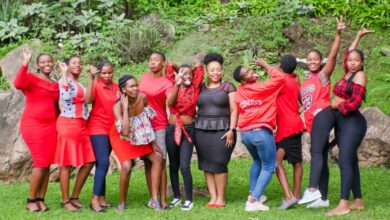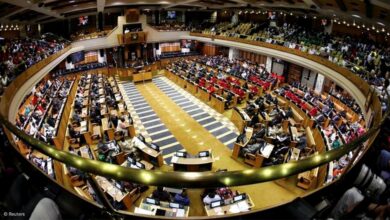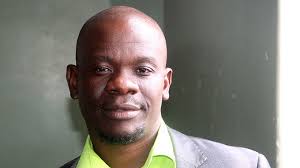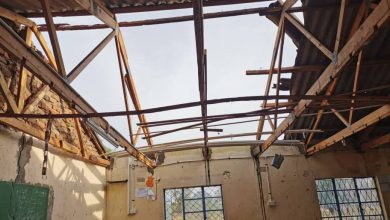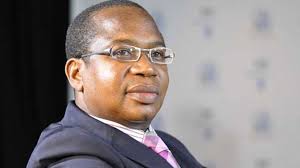Chiefs to develop template to tackle Gukurahundi
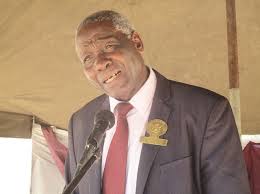
The National Council of Chiefs says it is yet to come up with a template on how to proceed with solving Gukurahundi after they were recently assigned by President Emmerson Mnangagwa to deal with the matter.
President Mnangagwa met chiefs last week at the Bulawayo State House where the parties resolved each chief would spearhead the resolution of Gukurahundi on a case by case basis.
However, some chiefs think traditional leaders have no constitutional mandate to deal with the genocide as that role lies with the National Peace and Reconciliation Commission (NPRC).
In an interview with CITE, Deputy President of the National Council of Chiefs, Chief Lucas Mtshane Khumalo, said they were going to develop a template to be used when engaging their communities.
“It is important that all chiefs say the same thing and not say different outcomes. The template will act as our guideline. This is our next step,” he said.
“Dealing with Gukurahundi is now our responsibility and we have to plan because no one will come to help us in solving it besides ourselves.”
Chief mtshane khumalo
Chief Mtshane said President Mnangagwa had committed to avail resources that would be used by the chiefs when they were ready to reach out to people.
“For now, I don’t know what the template will look like. The template may include issues that may have been raised before and if there are gaps, those gaps would be added to it. But the template will list procedures that are to be followed,” he said.
“For example, birth certificates for victims of Gukurahundi -we need to know the procedures that are to be done and these will be factored into the template so that people know these processes.”
In meeting President Mnangagwa last week, Chief Mtshane said the chiefs had compiled the document they had discussed with stakeholders.
“There were stakeholders over 30 who also inputted their views. That document was presented to the president who responded. What is important among those issues is Gukurahundi, where views have to come from the victims themselves and not take views from others.” the chief said.
As to whether the document they discussed with the president would be made public, Chief Mtshane said those issues had been presented by the permanent secretary in the Information, Publicity and Broadcasting Services Ministry, Nick Mangwana after the meeting as a press statement.
Chief Mtshane added the chiefs would have to meet soon and work on the template before committing to when the implementation of outcomes would start.
“We can meet anytime from now, the sooner the better because this matter has taken too long. We have to proceed to its end. We also have to compile reports to the President, where each chief in Matabeleland and perhaps those from Midlands as well are to compile their own reports. This will take time but we hope to meet soon and design this template,” said the traditional leader.
Meanwhile, Chief Khulumani Mathema of Gwanda said since the August 21 meeting was attended by members of the National Council of Chiefs, most chiefs were yet to be briefed about what transpired there.
“We are yet to be informed about what occurred in that meeting, otherwise what we know now is the press statement that has been circulating on social media and what we read in the news,” he said.
Chief Mathema said he personally does not agree with the recommendation where chiefs were assigned to take the lead in resolving the genocide.
“There seems to be no ownership or responsibility for Gukurahundi in all these meetings or outcomes. There is no perpetrator in this whole set-up,” he pointed out, adding it was worrying that areas such as Midlands seem to be excluded from the Gukurahundi narrative.
chief mathema
The outspoken chief also said traditional leaders were not the right people to address the genocide.
“As the chiefs, we have no mandate when looking at Zimbabwe’s constitution to address this issue, the NPRC is the one that was given that constitutional mandate,” Chief Mathema said.
He explained that their involvement must not exclude other key stakeholders in solving the 1980s atrocities.
“I once said to the Head of State before we went for elections that chiefs must be involved but it is unfortunate that I was not asked what I meant. Previously, Gukurahundi, was a hidden subject, as people were scared to talk about their experiences such as rape, torture, or its effects issues such as economic distress, marginalisation, underdevelopment of Matabeleland so when we say chiefs must be involved, we meant their presence was to give confidence to people to open up,” Chief Mathema indicated.
“When people see their chief also being part of the discussions on Gukurahundi, they would be free to talk about it. Otherwise, people on their own would be afraid and prefer to stay quiet and die with their grievances.”
Chief Mathema also said mapping was required when resolving Gukurahundi because not all chieftainships were affected by the genocide.
“Not every chief will be involved therefore I say this meeting was an ambush. We were not consulted as chiefs about what was to happen. Gukurahundi deserves public attention and consultations with people who were affected,” he said.
“But when we read what was discussed from that meeting, it is clear their priorities are not what the victims prioritise. Narrowing Gukurahundi to birth certificates is reducing the status and magnitude of the genocide. Their paper reflects how clear the issues that they discussed were minute.”

